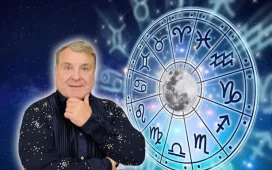
The makers of a BBC docudrama about the rise of far-right movements in the UK believe it’s largely driven by a growing sense of “hopelessness” in some sections of society.
The Left Behind, produced by the Bafta-winning team behind Killed By My Debt, tells the story of a young Welsh man with no job security, housing or hope, who is drawn into committing an Islamophobic hate crime.
The docudrama draws on the research of Professor Hilary Pilkington, who spent time with the English Defence League (EDL) for her book Loud and Proud. It notes that in 2018 there was a 36% increase in the number of far-right extremists referred to the UK government’s counter-terrorism programme, Prevent. It also details that there were 94,098 hate crimes in England and Wales that year – an increase of 123% in five years.
Director Joseph Bullman believes lead character, Gephin – portrayed by Sion Daniel Young – is a victim of a broken system and representative of some British people living insecure lives.
“People live in structural conditions where these kinds of opinions are being bred,” says the director, at a Q&A following the film’s London premiere.
“Anyone who has grown up in a working class community will know that the vast overwhelming majority of people love their families and just want to get on and make decent lives for their kids, but there are a minority who are being attracted to these perspectives because people are genuinely hopeless and I think that hopelessness is the thing that is driving this.”
He adds: “Most of those people, when you read the studies, live ultra-insecure lives in ultra-low wage jobs and they can’t have a narrative for their lives. They feel humiliated, excluded and left behind and they’ve reached very wrong conclusions about migrants. We’ve just stopped listening to them – and it hasn’t worked.”
Gephin (centre) and his friends discuss their plans in the pub
Bullman claims the map of the concentration of support for such movements closely mirrors a map of “Britain’s post-industrial towns and cities”. It is, he adds, poor working class communities with “real grievances” about employment, housing and social care, that are increasingly turning to the far-right movement.
“There aren’t that many far-right groups in Hampstead and Richmond-upon-Thames,” he says.
Responding to the film-maker’s comments, a government spokesperson tells the BBC the reasons for people becoming “radicalised” are more complex than that, and in running the Prevent programme they are doing what they can to stop it.
“Government and academic research has consistently indicated that there is no single socio-demographic profile of a terrorist in the UK,” they say, “and no single pathway leading to involvement in terrorism.”
The strategy, the spokesperson adds, is about “safeguarding vulnerable people from all walks of life who are at risk of radicalisation,” and constitutes “a comprehensive approach to tackling all forms of extremism, including the far right”.
“We will not tolerate any group or individual that spreads hate by demonising those of other faiths or ethnicities or stokes fear within our communities.”
‘Don’t become a ghost’
Bullman approached Welsh playwright Alan Harris (Sugar Baby, How My Light is Spent), to come up with the script for The Left Behind. It is based loosely around the Ely estate in Cardiff and Bullman says they tried to cast actors who “felt authentic” and had “some sense of the communities we were talking about”.
This led Young, who lived locally, to turn down another guaranteed film part and to write Bullman a letter asking to be considered for the lead role.
“You don’t get that many stories of this weight and magnitude set in a world that I know,” says Young, whose character’s dad is also homeless and living on the streets.
Writer Harris says for him the most memorable scene involves Gephin and his increasingly radical friends, with a group of desperate constituents (played by supporting artists) “ripping shreds” off their local councillor.
In researching the film, Harris stumbled upon the chilling phrase and refrain “don’t become a ghost,” which is used as a recurring motif.
“There are a lot of people in this country who feel as though they really don’t matter,” he explains, “as if they are see-through.
“They are as effective as ghosts and that’s a proper worry for people, you become kind of nothing really.”
The factual drama begins with Gephin’s gang attacking a halal butchers, while wearing pig masks, and then works backwards to attempt to understand their motives.
Immigration has been a key talking point in British politics in recent history and will continue to be as Brexit plays out. Executive producer Aysha Rafaele stresses the importance of bringing these difficult images to the screen.
“The big divide in the country at the moment is really between what the effects of globalisation are,” she says.
“Editorially we all know what we’re trying to do with a film like this, where you are going to be accused of giving people a platform. Wouldn’t it be better to just bury it? As a British Pakistan Muslim the answer is no, we should not be burying it. It is our responsibility as film-makers to allow voices you don’t ordinarily hear.”
The best thing policy makers can do, Rafaele says, is listen to the grievances of local communities in the UK, as that is “the only way British Muslims are going to become safe”.
“Immigration and anti-immigrant sentiment actually embodies so many other things – it’s about the boarded-up high street, it’s about the fact industry in the area has shut down, it’s about the fact the jobs people are doing are precarious.
“Austerity is a political choice not an inevitably, and the impact of globalisation is also a choice.”
The Left Behind is available now on BBC Three online and also airs on BBC One on Wednesday at 22:35 BST.
Follow us on Facebook, on Twitter @BBCNewsEnts, or on Instagram at bbcnewsents. If you have a story suggestion email entertainment.news@bbc.co.uk.














